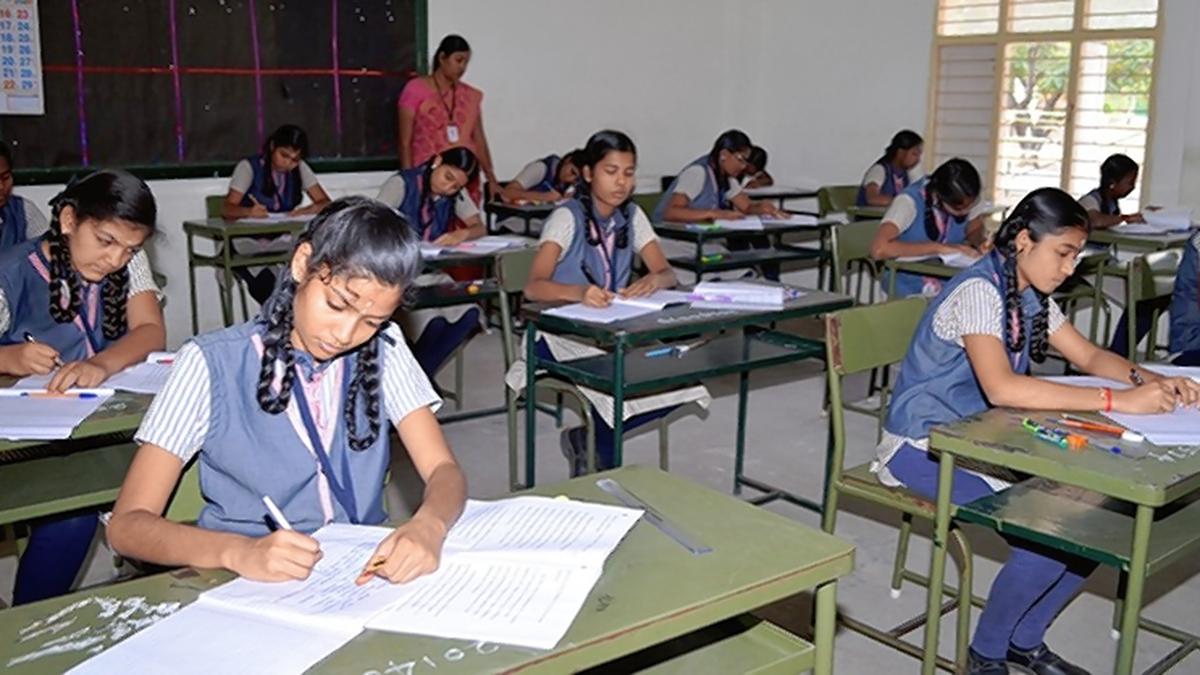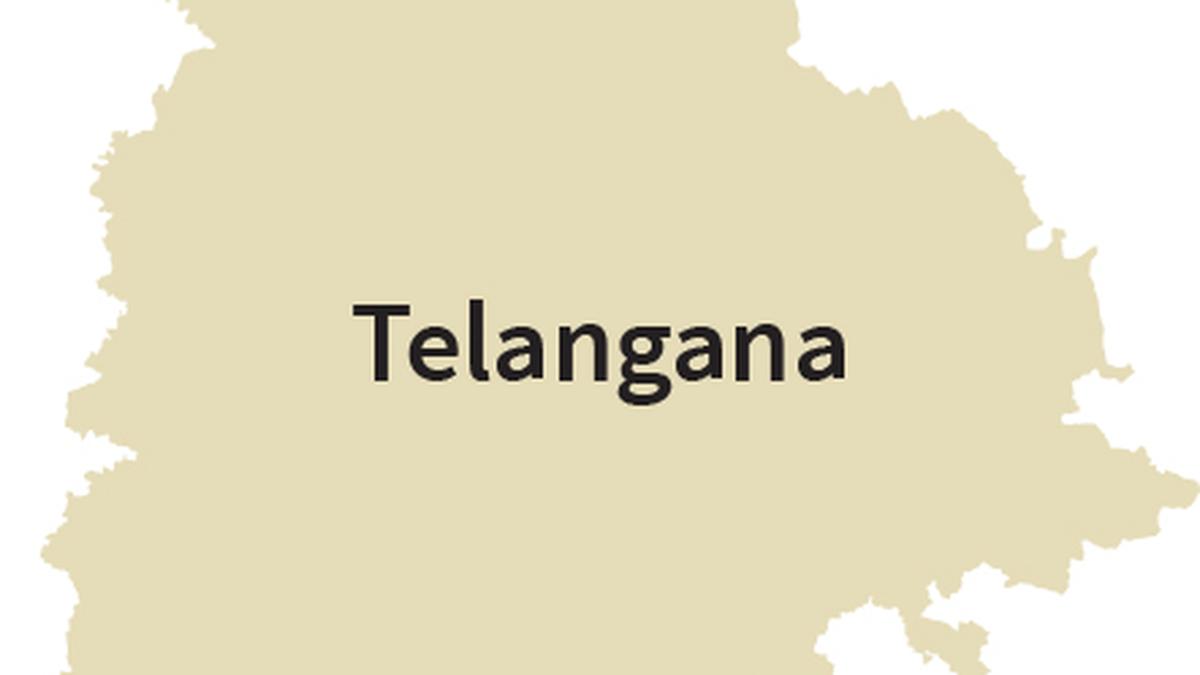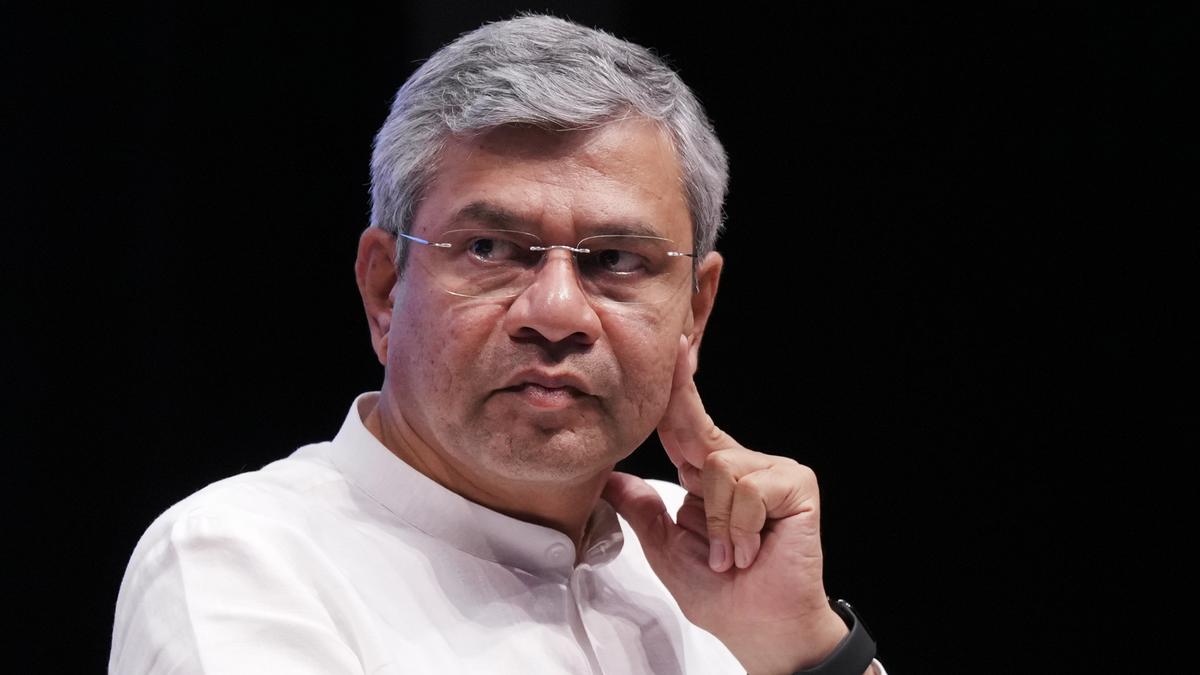ARTICLE AD BOX
Last Updated:June 25, 2025, 12:26 IST
The Shukla household in Aliganj became the focal point of celebration and prayer, as family members and neighbours came together to witness one of their own soar into space.

Indian astronaut Shubhanshu Shukla's family celebrates as Axiom-4 lifts off. (Image: ANI)
“He called early this morning," said Shubhanshu Shukla’s mother Asha, while controlling her emotions. It was an emotional morning in Lucknow as their local boy Shubhanshu made history, becoming the second Indian astronaut to head to space as the Axiom Mission 4 (Ax-4) lifted off today. As the family watched the lift-off on livestream, Asha Shukla was seen tearing up with pride as she saw her son carrying his dreams and making the country proud.
“He said, ‘Maa, it’s happening today.’ I couldn’t hold back my tears. We’ve waited so long for this moment. This isn’t just his achievement—it’s our entire family’s," Shubhanshu’s mother told News18.
Lucknow, Uttar Pradesh: Captain Shubhanshu Shukla is heading to the International Space Station (ISS) as part of the Axiom-4 MissionCaptain Shubhanshu Shukla’s Mother says, “Today is a very special and joyful day. We have been waiting for this moment for so long, patiently and… pic.twitter.com/UAYlNKYPPc
— IANS (@ians_india) June 25, 2025
As anticipation gripped the city, a sense of history and pride enveloped the air. The Shukla household in Aliganj became the focal point of celebration and prayer, as family members and neighbours came together to witness one of their own soar into space aboard the Axiom-4 mission to the International Space Station (ISS).
The narrow streets of Aliganj, still damp from a pre-dawn drizzle, were filled with a buzz that hadn’t been felt before. Flower garlands framed doorways, tricolours fluttered on rooftops, and loudspeakers played devotional chants as neighbours gathered outside the home of Group Captain Shubhanshu Shukla. Just past noon, a rocket carrying their son, their pride, launched into the sky from Florida’s Kennedy Space Center — destination: the International Space Station (ISS).
Inside the Shukla residence, anticipation gave way to teary pride as television screens confirmed liftoff. Shubhanshu, a decorated Indian Air Force officer, had taken flight aboard SpaceX’s Falcon-9 rocket as the pilot of the historic Axiom-4 private mission. With that, he became only the second Indian to fly into space in 41 years — and the first Indian to travel to the ISS.
Prayers, Pride, and a Mother’s Blessing
From the break of dawn, his mother, Asha Shukla, had been leading the household in prayer. Draped in a yellow saree and clutching a tulsi mala, she oscillated between the family’s prayer room and the living room where the live launch stream was being prepared. The air was thick with emotion.
#WATCH | Lucknow, Uttar Pradesh: Parents of IAF Group Captain & astronaut Shubhanshu Shukla, celebrate as #Axiom4Mission lifts off from NASA’s Kennedy Space Centre in Florida, US.The mission is being piloted by India’s IAF Group Captain Shubhanshu Shukla. pic.twitter.com/SeRGTUiQeV
— ANI (@ANI) June 25, 2025
“Our daughter-in-law deserves as much credit. She has stood beside him through every stage – when dates were postponed, during sleepless nights, and training schedules across continents. Without her, he couldn’t have reached here."
A Father’s Quiet Strength
Shubhanshu’s father, Shambhu Dayal Shukla, a retired UPPCL officer, stood beside the television with folded hands as the rocket lifted off. “I have no words," he said, eyes glistening. “Just gratitude – for the Air Force, for this country, and for our son, who is now carrying our hopes into the stars."
When asked what it felt like to see his son become a spacefarer, he paused before answering, “He is not just going to space. He is carrying Lucknow, Uttar Pradesh, and all of India with him."
Who is Shubhanshu Shukla?
Born in Lucknow in 1986, Shubhanshu Shukla is a Group Captain in the Indian Air Force and a trained fighter pilot. A graduate of the prestigious National Defence Academy (NDA), he was commissioned into the Air Force in 2006 and has logged thousands of flying hours in high-performance aircraft. He is also one of the astronauts shortlisted by ISRO for its ambitious Gaganyaan mission, expected to launch in 2027.
Shubhanshu underwent astronaut training in Russia and the United States, where he specialised in orbital mechanics, emergency procedures, and scientific research in microgravity. Known for his discipline and calm demeanour, he represents a new generation of Indian space explorers — technically sound, globally trained, and mission-focused.
What Will He Do Aboard the ISS?
Shubhanshu will spend 14 days aboard the ISS, where he will conduct seven scientific experiments developed by Indian academic institutions. Most of these studies are focused on biological and health sciences, such as understanding the effects of microgravity on the human body and living organisms.
In addition, he will collaborate with NASA on five more experiments aimed at gathering data to support future long-duration space missions. The scientific findings from this mission will directly benefit India’s upcoming Gaganyaan program, providing critical insight into space medicine and technology.
Cost of the Mission and India’s Investment
The total estimated cost of India’s involvement in the Axiom-4 mission stands at approximately Rs548 crore (around $66 million USD). This includes astronaut training, payload development, hardware procurement, and international collaborations. The cost also covers the training of Shubhanshu’s backup, Group Captain Prashant Nair.
A Historic Spaceflight 41 Years in the Making
Shubhanshu Shukla’s launch marks a significant chapter in India’s space journey. The last time an Indian entered space was in 1984, when Wing Commander Rakesh Sharma flew aboard a Soviet spacecraft. Now, more than four decades later, Shubhanshu is writing the next line of that story — this time as part of a private mission led by Axiom Space in collaboration with NASA and SpaceX.
The Axiom-4 crew also includes veteran astronaut Peggy Whitson as mission commander, and two mission specialists: Tibor Kapu of Hungary and Slawosz Uznanski-Wisniewski of Poland.
Their spacecraft is scheduled to dock with the International Space Station at 4:30 PM IST on June 26. For the next 14 days, Shubhanshu will conduct seven Indian scientific experiments and participate in five additional NASA-led studies, mostly focused on biology, health, and engineering in microgravity.
“The data from this mission will support our future space programs, especially Gaganyaan," said a senior ISRO official. “This is a global platform, and India has arrived."
Why This Mission Matters for India
Shubhanshu’s journey is not just symbolic — it is strategic. His time aboard the ISS will provide India with crucial data, technical experience, and astronaut preparedness ahead of the Gaganyaan human spaceflight, scheduled tentatively for 2027. His personal learnings, along with scientific results from his experiments, are expected to strengthen India’s indigenous human spaceflight capabilities.
A senior ISRO official commented, “This is more than just representation in space. It is knowledge transfer, hands-on international experience, and a bridge to India’s future in human spaceflight."
Axiom Missions and the ISS: The Bigger Picture
Axiom Mission-4 is a private spaceflight mission led by Axiom Space, in partnership with NASA and SpaceX. It is the fourth mission launched by the company, which seeks to expand access to low-Earth orbit and ultimately build the world’s first commercial space station. Axiom’s previous missions include Axiom-1, which lasted 17 days in April 2022; Axiom-2, which lasted 8 days in May 2023; and Axiom-3, which extended to 18 days in January 2024.
The International Space Station (ISS), where Shubhanshu will be stationed, is a massive orbiting research facility that travels around the Earth every 90 minutes at a speed of 28,000 km/h. It is the result of a collaboration among five space agencies—NASA (USA), Roscosmos (Russia), ESA (Europe), JAXA (Japan), and CSA (Canada)—and has been operational since 1998. Onboard, astronauts conduct research in microgravity across a range of disciplines, including biology, material science, fluid mechanics, and human physiology. These experiments not only contribute to the advancement of space exploration but also yield breakthroughs that improve life on Earth.
Celebration in the Streets, Screens in the Schools
As the rocket climbed skyward, cheers erupted in the Shukla home and outside in the lanes. Neighbours rang bells, burst firecrackers, and waved the national flag. Children chanted his name as elders distributed sweets.
Not far from his home, City Montessori School (CMS), Aliganj—Shubhanshu’s alma mater—hosted a live screening of the launch. Hundreds of students sat cross-legged, their eyes glued to the screen, watching a former student reach for the stars.
“He was always fascinated by the skies," recalled Rajesh Agarwal, his former physics teacher. “He would stay after class, asking questions about orbits, gravity, and flight. Today, he’s living the dreams he once scribbled in his notebook."
A City’s Son, A Nation’s Pride
As the Falcon-9 disappeared into the clouds, people in Aliganj looked up not just at a rocket, but at the idea of limitless possibility. Shopkeepers closed their shutters for a minute of silent pride, temples and mosques echoed with prayers, and students scribbled down the name “Shubhanshu Shukla" in their notebooks, not as a chapter heading—but as inspiration.
“He has touched the sky," said neighbour Farzana Rizvi, “and now every child here believes they can too."
- Location :
- First Published:
News cities » lucknow-news 'Maa, It’s Happening Today': Emotions Fly High As Shubhanshu Shukla Begins Journey To Space On Axiom-4



.png)
.png)
.png)
















 4 hours ago
3
4 hours ago
3









 English (US) ·
English (US) ·